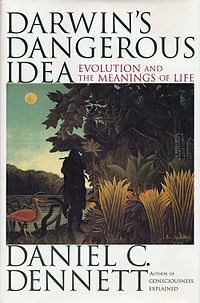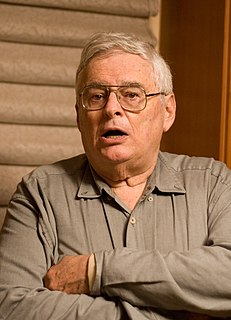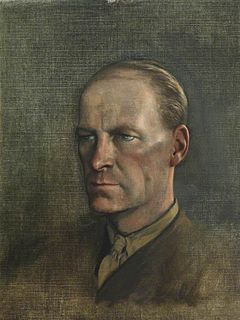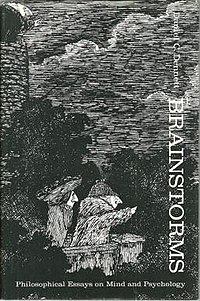
Consciousness, at its simplest, is sentience or awareness of internal and external existence. Despite millennia of analyses, definitions, explanations and debates by philosophers and scientists, consciousness remains puzzling and controversial, being "at once the most familiar and [also the] most mysterious aspect of our lives". Perhaps the only widely agreed notion about the topic is the intuition that consciousness exists. Opinions differ about what exactly needs to be studied and explained as consciousness. Sometimes, it is synonymous with the mind, and at other times, an aspect of mind. In the past, it was one's "inner life", the world of introspection, of private thought, imagination and volition. Today, it often includes any kind of cognition, experience, feeling or perception. It may be awareness, awareness of awareness, or self-awareness either continuously changing or not. There might be different levels or orders of consciousness, or different kinds of consciousness, or just one kind with different features. Other questions include whether only humans are conscious, all animals, or even the whole universe. The disparate range of research, notions and speculations raises doubts about whether the right questions are being asked.
The Chinese room argument holds that a digital computer executing a program cannot have a "mind", "understanding" or "consciousness", regardless of how intelligently or human-like the program may make the computer behave. The argument was presented by philosopher John Searle in his paper, "Minds, Brains, and Programs", published in Behavioral and Brain Sciences in 1980. Similar arguments were presented by Gottfried Leibniz (1714), Anatoly Dneprov (1961), Lawrence Davis (1974) and Ned Block (1978). Searle's version has been widely discussed in the years since. The centerpiece of Searle's argument is a thought experiment known as the Chinese room.

Daniel Clement Dennett III is an American philosopher, writer, and cognitive scientist whose research centers on the philosophy of mind, philosophy of science, and philosophy of biology, particularly as those fields relate to evolutionary biology and cognitive science.

Darwin's Dangerous Idea: Evolution and the Meanings of Life is a 1995 book by the philosopher Daniel Dennett, in which the author looks at some of the repercussions of Darwinian theory. The crux of the argument is that, whether or not Darwin's theories are overturned, there is no going back from the dangerous idea that design might not need a designer. Dennett makes this case on the basis that natural selection is a blind process, which is nevertheless sufficiently powerful to explain the evolution of life. Darwin's discovery was that the generation of life worked algorithmically, that processes behind it work in such a way that given these processes the results that they tend toward must be so.

Douglas Richard Hofstadter is an American scholar of cognitive science, physics, and comparative literature whose research includes concepts such as the sense of self in relation to the external world, consciousness, analogy-making, artistic creation, literary translation, and discovery in mathematics and physics. His 1979 book Gödel, Escher, Bach: An Eternal Golden Braid won both the Pulitzer Prize for general nonfiction and a National Book Award for Science. His 2007 book I Am a Strange Loop won the Los Angeles Times Book Prize for Science and Technology.
The problem of other minds is a philosophical problem traditionally stated as the following epistemological question: Given that I can only observe the behavior of others, how can I know that others have minds? The problem is that knowledge of other minds is always indirect. The problem of other minds does not negatively impact social interactions often due to instinctive assumptions that others exist, in part explained by mirror neuron functioning.

The Origin of Consciousness in the Breakdown of the Bicameral Mind is a 1976 book by the Princeton psychologist, psychohistorian and consciousness theorist Julian Jaynes (1920-1997). The book addresses the problematic nature of consciousness – “the ability to introspect” – which in Jaynes’ view must be distinguished from sensory awareness and other processes of cognition. Jaynes presents his proposed solution: that consciousness is a “learned behavior” based more on language and culture than on biology; this solution, in turn, points to the origin of consciousness in ancient human history rather than in metaphysical or evolutionary processes; furthermore, archaeological and historical evidence indicates that prior to the “learning” of consciousness, human mentality was what Jaynes called "the bicameral mind" – a mentality based on verbal hallucination.

The Mind's I: Fantasies and Reflections on Self and Soul is a 1981 collection of essays and other texts about the nature of the mind and the self, edited with commentary by philosophers Douglas R. Hofstadter and Daniel C. Dennett. The texts range from early philosophical and fictional musings on a subject that could seemingly only be examined in the realm of thought, to works from the twentieth century where the nature of the self became a viable topic for scientific study.
John Haugeland was a professor of philosophy, specializing in the philosophy of mind, cognitive science, phenomenology, and Heidegger. He spent most of his career at the University of Pittsburgh, followed by the University of Chicago from 1999 until his death. He is featured in Tao Ruspoli's film Being in the World.

Jerry Alan Fodor was an American philosopher and the author of many crucial works in the fields of philosophy of mind and cognitive science. His writings in these fields laid the groundwork for the modularity of mind and the language of thought hypotheses, and he is recognized as having had "an enormous influence on virtually every portion of the philosophy of mind literature since 1960." Until his death in 2017 he held the position of State of New Jersey Professor of Philosophy, Emeritus, at Rutgers University.

Gilbert Ryle (1900–1976) was a British philosopher, principally known for his critique of Cartesian dualism, for which he coined the phrase "ghost in the machine." He was a representative of the generation of British ordinary language philosophers who shared Ludwig Wittgenstein's approach to philosophical problems.
The intentional stance is a term coined by philosopher Daniel Dennett for the level of abstraction in which we view the behavior of an entity in terms of mental properties. It is part of a theory of mental content proposed by Dennett, which provides the underpinnings of his later works on free will, consciousness, folk psychology, and evolution.
Here is how it works: first you decide to treat the object whose behavior is to be predicted as a rational agent; then you figure out what beliefs that agent ought to have, given its place in the world and its purpose. Then you figure out what desires it ought to have, on the same considerations, and finally you predict that this rational agent will act to further its goals in the light of its beliefs. A little practical reasoning from the chosen set of beliefs and desires will in most instances yield a decision about what the agent ought to do; that is what you predict the agent will do.

Victim of the Brain is a 1988 film by Dutch director Piet Hoenderdos, loosely based on The Mind's I (1981), a compilation of texts and stories on the philosophy of mind and self, co-edited by Douglas Hofstadter and Daniel C. Dennett. The film weaves interviews with Hofstadter with adaptations of several works in the book: Dennett's Where am I?, The Soul of the Mark III Beast by Terrel Miedaner, and also the short story The Seventh Sally: How Trurl's Own Perfection Led to No Good from The Cyberiad by Stanisław Lem. The film was shown several times on television in the Netherlands in the late 1980s.
Synthetic intelligence (SI) is an alternative/opposite term for artificial intelligence emphasizing that the intelligence of machines need not be an imitation or in any way artificial; it can be a genuine form of intelligence. John Haugeland proposes an analogy with simulated diamonds and synthetic diamonds—only the synthetic diamond is truly a diamond. Synthetic means that which is produced by synthesis, combining parts to form a whole; colloquially, a human-made version of that which has arisen naturally. A "synthetic intelligence" would therefore be or appear human-made, but not a simulation.
The philosophy of artificial intelligence is a branch of the philosophy of technology that explores artificial intelligence and its implications for knowledge and understanding of intelligence, ethics, consciousness, epistemology, and free will. Furthermore, the technology is concerned with the creation of artificial animals or artificial people so the discipline is of considerable interest to philosophers. These factors contributed to the emergence of the philosophy of artificial intelligence. Some scholars argue that the AI community's dismissal of philosophy is detrimental.
An intuition pump is a thought experiment structured to allow the thinker to use their intuition to develop an answer to a problem.
(Robert) Paul Ziff was an American artist and philosopher specializing in semantics and aesthetics.
Arnold Stuart Zuboff is an American philosopher who has worked on topics such as personal identity, philosophy of mind, ethics, metaphysics, epistemology and the philosophy of probability. He is the original formulator of the Sleeping Beauty problem and a view analogous to open individualism—the position that there is one subject of experience, who is everyone—which he calls "universalism".










